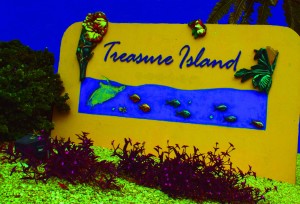Fifa ate my hamster
There has been much media coverage of the many millions allegedly paid in bribes to secure the rights to hold the 2022 Football World Cup in Qatar. These include evidence of an alleged $1.2m payment from a Qatari company involved in the bid to Jack Warner a Fifa executive member from Trinidad and Tobago and alleged payments of up to $200,000 each to 30 heads of African football associations using ten slush funds.
Fifa the world governing body for football launched an investigation into the bids which was carried out by Michael Garcia, a US attorney. Last Friday, Garcia submitted his findings to FIFA. The document is secret pending consideration by Fifa, and indeed may never be published.
But the press release issued by Fifa at the conclusion of Garcia’s report suggests no drastic action is called for.
According to the governing body:
“The report sets forth detailed factual findings; reaches conclusions concerning further action with respect to certain individuals; identifies issues to be referred to other FIFA committees; and makes recommendations for future bidding processes,”
So it would seem a few scapegoats are to be slaughtered whilst many in Qatar who will benefit hugely from rights bought through corruption will be allowed to carry on. The announcement is sure to disappoint many, including the UK Deputy Prime Minster Nick Clegg, who called for the World Cup bids ballot to be rerun.
Further questions may be asked over how serious Fifa is about reform after a member of the Financial Compliance Committee at CONCACAF, the North and Central American and Caribbean association, was arrested for money laundering and corruption last week.
Mr Watson was arrested by the Cayman Islands police as part of a corruption probe during his time at the Cayman Health Authority. The Financial Compliance Committee was set up in the wake of the scandal over the bribes paid to former CONCACAF President Jack Warner.
Over at Frontier Sports, Jack Rowland, a campaigner for better governance in sports, argues that corruption has got so bad that we may be reaching a “tipping point”.
Somebody has obviously forgotten to feed this information to Sep Blatter, the Fifa boss who presided over the whole stinking corrupt process. Blatter has just confirmed he is running for another term as Fifa president. What a beautiful game.
 View full screen
View full screen
Tax Avoidance – the Movie
The issue of global tax avoidance has moved from the stage to the big screen. The Price We Pay was given its world premiere at the Toronto International Film Festival last week.
The film by Harold Crooks explores the history and development of tax havens, posing deep questions about how the global financial system has clouded democratic government.
It has received strong reviews and you can see a trailer of the film here.
Trailer – THE PRICE WE PAY – a feature documentary by Harold Crooks from Filmoption International on Vimeo.
To keep up to date of when the film may be hitting the big screens near you, you can join The Price We Pay facebook page.
Want to earn $7.5 trillion? Here’s how…
How to stop a trillion dollars a year being lost to the developing world? The Centre for Global Development’s Alex Cobham has come up with a set of radical and challenging ideas.
1. Eradicate companies, trusts and funds where the true beneficiary owner is unknown.
2. Stop any cross-border trade between countries that don’t automatically exchange tax information.
3. Cut to zero the number of multinationals that don’t report their financial activities on a country-by-country basis.
Cobham’s ideas would make most finance ministers in the developed world squirm, but he says there are huge gains for developing countries. Just eradicating the anonymous shell companies and trust he thinks could bring in up to $7.5 trillion.
The paper has been published as part of a wider debate on the renewal of the Millennium development goals, due in 2015. It has come at the time when an increasing amount of attention is being given to the role of illicit financial flows and tax avoidance in the developing world.
The ONE Campaign released a report last week stating that over $1 trillion are lost to illicit financial flows from the developing world a year. The Kenyan Standard recently reported that 100bn Kenyan shillings are being lost a year through tax exemptions given to large companies, and Helge Fjeldstan a Senior Researcher at Michelsen Institute (CMI) in Bergen, Norway highlighted in a recent speech that tax exemption problems apply to a number of African countries.
Inversions – a huge problem that calls for a huge amount of lobbying from corporate America.
In last week’s Wrapper, we highlighted the ongoing US issue of corporate inversions – where American companies relocate their headquarters in the UK to save corporation and other business taxes.
Now research compiled by Moody’s for the Financial Times shows that the three largest companies currently involved in inversions hold £21bn offshore. In total $178bn of deals involving corporate inversions have been announced since 2013.
Inversions are clearly a big tax avoiding problem. Consequently, it has attracted a lot of attention from Congress and the President.
With Corporate America’s reputation at risk, US business requires a major lobbying campaign in order to restore its battered image.
Step forward, the United States Chamber of Commerce which has responded to the call and launched a multimillion dollar campaign to “educate policymakers and voters about the need for a modern and competitive tax code.”
Top of the list for the Chamber of Commerce is stopping the possibility of introducing retrospective laws on corporate inversions.
“It is fundamentally unfair to come back around later and punish those who played by the rules and followed the law,” says Bruce Josten of the Chamber. “These proposals are comparable to the IRS knocking on your door and forcing you to pay back a tax deduction you took legally last year,” he added.
You may think this is questionable logic. And you may well be right. After all, the tax gains made by companies moving their residency to a tax haven are permanent. And most people can probably see that there is a difference between an individual claiming a tax exemption which has been allowed for by the government, and stashing billions offshore to avoid taxes due to the government.
Over to you, Mr Josten.
 Why always me?
Why always me?
The Cayman Compass has been complaining about the country being called a tax haven. Apparently, Cayman has been “at the forefront of global transparency initiatives for many years”.
According to the Compass, one reason is the Tax Justice Network’s Financial Secrecy Index. Apparently the TJN has a “clear hidden agenda” and so can’t be trusted.
Let’s not dwell on the concept of a “clear hidden agenda”.
Instead we shall focus on the Compass’s failure to mention that:
• the Caymans charges no income, capital gains or corporation tax;
• there are 85,000 companies on the islands – way more than the entire population; and
• there are frequent reports of illicit funds channeled though the Cayman Islands (for example this one on illegal logging proceeds).
Reader, we ask you to ponder this:
The Caymans’ financial sector accounts for over 50% of its GDP. It controls among other things $1.7 trillion of the world’s banking assets means.
Are you therefore comforted to learn the Cayman financial regulator employs 168 people who have the herculean task of policing one of the largest financial centers in the world?
Still, the Cayman Island government has won big on one aspect of its campaign to improve the reputation of the country’s financial services. After lobbying from the Cayman Islands the UK’s Financial Conduct Authority has now agreed to scrap its list of jurisdictions that it regards as high risk for money laundering and organized crime.






Leave a Reply